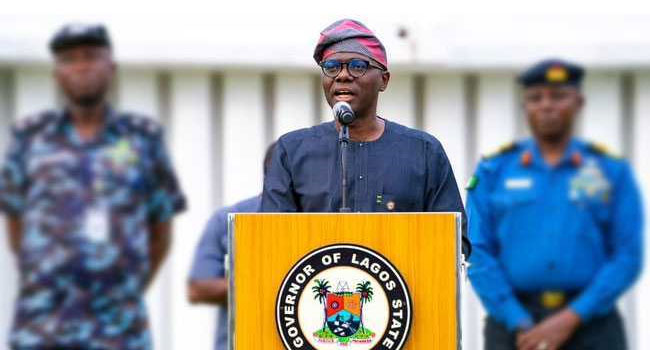A chieftain of the ruling All Progressives Congress (APC) and the Director General of the Progressive Governors Forum (PGF) Salihu Moh Lukman, has declared that bandits operating in the North-west and North-central parts of the country all have the characteristics of terrorist groups.
The APC chieftain however condemned opposition by some persons such as Sheikh Ahmed Gumi to declare the bandits terrorists.
In a statement released to newsmen Thursday in Abuja, Lukman described as ‘old ideological mindsets’ the recent editorial opinion published by The Economist magazine on the capacity of the Nigerian Army forces.
To facilitate better engagement between government officials and citizens working in the field of enquiry about critical challenges facing the country, Lukman suggested that at least NTA and FRCN with all their national coverage should have a weekly or daily programes at prime times to undertake public reviews of challenges and progress being made to fight insecurity in the country.
“Interestingly, apologists and self-appointed counsels to the Bandits, such as Sheikh Ahmed Gumi are becoming more confident, and are irresponsibly mobilising opposition against declaring bandits’ terrorists. All the studies about insecurity and banditry in Nigeria only confirmed that the bandits operating in the North-West and North-Central have all the characteristics of terrorist groups.
“For instance, a study by Dr. Murtala Ahmed Rufa’i, presented at the 15th Usman Danfodio University, Sokoto Seminar Series, on Thursday, September 9, 2021, titled, I am a Bandit – A Decade of Research in Zamfara State Bandit’s Den, reported that bandits are armed groups with ‘contacts across the Sahel, particularly Libya and Mali’, having ‘huge capital’, ‘in possession of more that 500 AK 47 guns’, and ‘own sophisticated weapons like RPGS and Anti-Aircraft.’ The report indicated that ‘there are over 60,000 weapons in circulation’ in the North-West alone.”
On the way forward, the APC chieftain said so long as public debates in the country are not guided by knowledge, citizens engagement with public policy will continue to be reduced to sentiment, and every challenge facing the country, including security problems, such as banditry would be politicised, and as such public conversation in the country will remain toxic.
“How APC can facilitate the reform of information management structures in the country to successfully mobilise Nigerians to support government initiatives will largely determine the electoral viability of the party.
“Once APC continue to allow speculative and false national debates such as the issue of unfounded agreement between Nigeria and US government on the use of the A-29 newly acquired Super Tucano jets, it is indicative of a weak communication management framework, which may only worsen the challenges facing the country.
“Inability to use knowledge to guide public debate is what confer legitimacy to so-called editorial opinion by arrogant news medium such as The Economist based on old ideological mindsets. Resolving the security challenge facing the country is about winning the ‘hearts and minds’ of Nigerians!”
The PGF boss also called for mainstreaming of some policies and initiatives of government agencies.
He said: “The campaign by National Orientation Agency, for instance, of change begins with me is one of such initiatives. Perhaps, it needs to be further strengthened and improved such that it highlights the new secure Nigeria being envisioned. How can the change begin with me campaign, also for instance, fit into the strategy of mobilising Nigerians to support the fight to end insecurity in the country, in all its ramification? To achieve that will require some radical reforms of many of the structures of government facilitating the process of information management, including the National Orientation Agency.”
Lukman noted that the current problems of insecurity and banditry in Nigeria is partly a direct consequence of the collapse of the country’s educational system, which is why there is estimated over 12 million Nigerian children out of school.
“Any debate about the challenges of insecurity and banditry in Nigeria, which misses this reality is simply uninformed and therefore unhelpful. The arrogance of The Economist, which made them to imagine that they can condemn Nigerian Armed Forces and Government based on some uninformed sentiments reflects the old ideological mindset that was used in the 1980s to impose Structural Adjustment Programmes, leading to the destruction of education and health sectors in most African countries, including Nigeria.”




